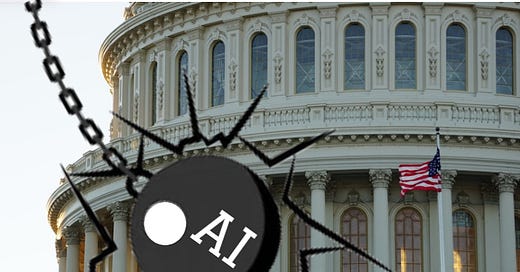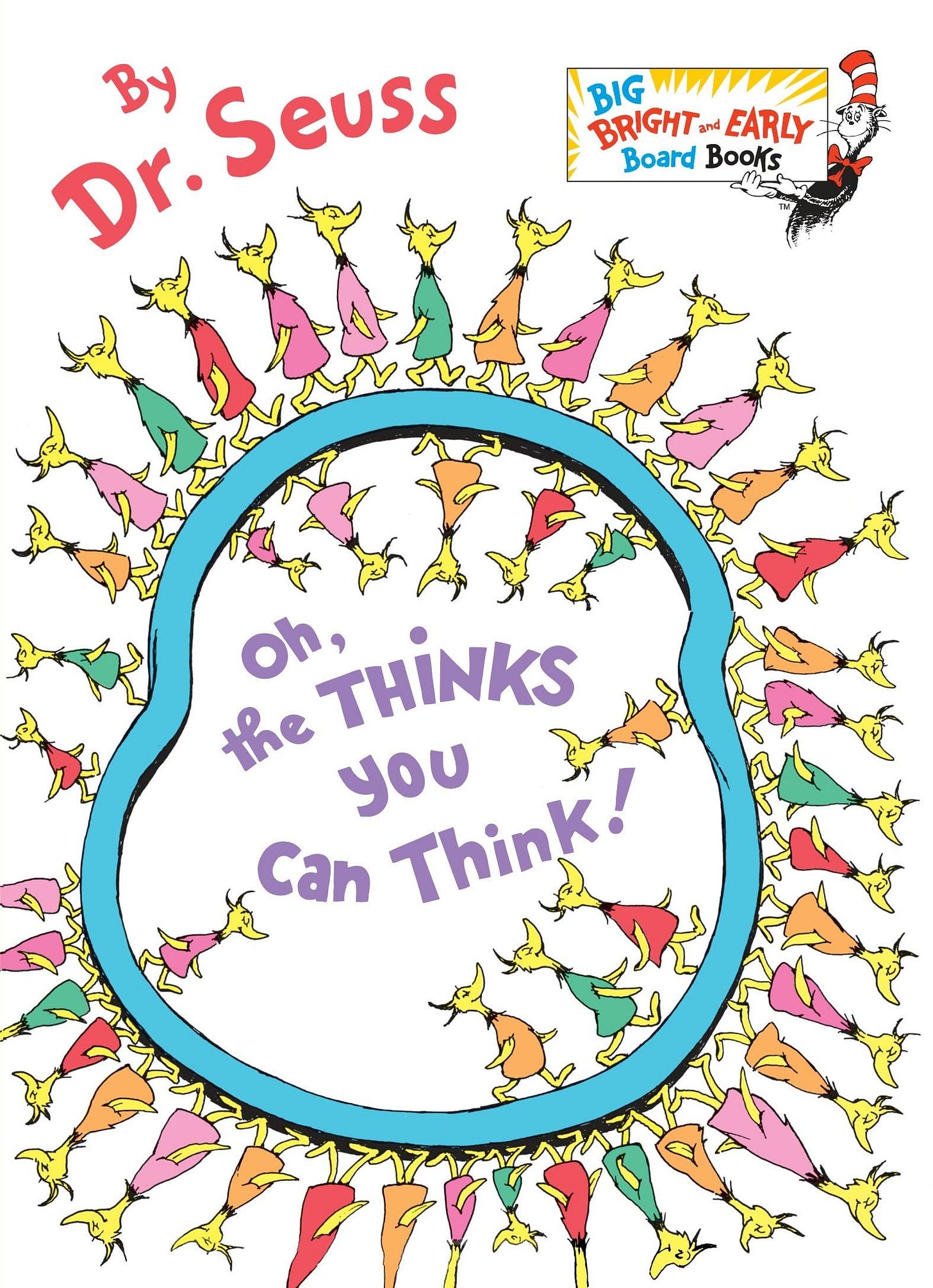The DOGE wrecking ball continues to slam into federal agencies and departments, and it is using AI extensively in its government reform efforts. Boss Elon Musk is pursuing an "AI-first" strategy to integrate systems across federal agencies, assess contracts, and recommend budget cuts — you know, the sort of stuff that typically takes months or years to accomplish and requires the combined brainpower of untold super-experienced bureaucrats, many of whom have unique knowledge of the systems they’re attempting to transform.
What can go wrong? Plenty.
What can go right? Also plenty.
I use AI daily to do things that, in my youth, would have taken weeks or months to accomplish but which I now achieve in minutes. If my work can be so transformed (the sheer and rapid locating and parsing analysis of information and data), then certainly the record-keeping and regulatory monitoring that the government does can also be dramatically upgraded.
This is not about running government like a business, which makes about as much sense as running a religion like a business (not that some don’t do this and makes boatloads of money doing it). They exist to address different problems and challenges — to accomplish things beyond the other’s reach.
AI is beyond such categories. Like most technologies, it can be applied anywhere to decent-to-good use, but only if you remain aware of its limitations and biases and pedigree.
Put simply, AI is what it eats.
My concern here?
DOGE applying AI before its time, attempting too much too fast and thus tainting AI with the inevitable mistakes that I can almost guarantee you will be of human causality (misuse of AI).
We have so many challenges staring humanity in the face right now, and, while better government is one of them, the stakes there are so great and so precedent-setting — especially to a populace right now that is in, let us say, a very tender and impressionable state of mind*, that we need more care exhibited by those plunging ahead than we’re seeing — albeit just in glimpses — so far.
[*I mean, seriously, we take big political cues from the likes of Joe Rogan and Jon Stewart and Bill Maher? A bunch of mediocre comics and failed sitcom actors? What are we? Ukraine? And yes, I am probably being unfair to Zelensky there, as I am told he was truly funny and a good sitcom actor to boot. Still, this is no way to run a government. These (self-admitted) clowns should have no currency in our system.]
The reality is, we are all just learning the limits of AI right now — particularly its desire (as I like to call it) to please the questioner. AI remains, for now, largely in the realm of predictive machinery. You ask a question and it predicts the answers you’re looking for. It wants to make you happy with the result, so it tends to come as far in your direction (i.e., more than halfway) as necessary to make that happen.
Behind that can-do bias is a larger one: AI models can exhibit biases that may lead to outputs aligning with perceived user expectations, which is a concern of AI ethics.
And then, behind that bias is the ultimate bias of AI: it knows what it’s been taught (scope of knowledge, temporal nature of data) and it’s best at what it’s been optimized for — like recognizing White faces better than Black ones.
AI does not possess understanding or consciousness like humans do. It generates responses based on patterns rather than true comprehension. While AI can generate impressively accurate and relevant responses, it fundamentally operates as a sophisticated "guesser” — an amazingly good guesser, but a guesser all the same.
If Dr. Seuss were alive today, we might read the following:
Guess left and guess right and guess low and guess high. Oh, the Guesses you can make up if only you try!
So, if Musk and DOGE are relying heavily on AI to sort things out, there’s no question that they could successfully find and remove all manner of waste (which, of course, they’ll label “fraud” because nothing succeeds like excess). The USG is layer upon layer of regulatory sediment accessed and operated through similarly dense layers of IT accumulated over the decades.
This is well known.
So, all sorts of inefficiencies should be found and simplified — very possibly with AI technologies favored (perhaps even owned) by Musk himself, or whichever Tech Bros can break into the intense bromance that is presently Musk + Trump.
That bond is not inherently evil, as some would describe it. It is ambitious beyond reason and self-confident beyond comprehension, but it’s there, doing its thing, while the Republican Congress sits on its thumbs, because the American public voted for it. And the American public voted for it because they’re exhausted by 18 years of “change elections” changing nothing and bare-majority parties accomplishing next-to-nothing.
So, we’re all indulging in suspended disbelief for now — with even the haters marveling at the sheer audacity and bureaucratic violence of it all. It is indeed thrilling to watch history move this fast. My Mom used to say the same thing about the late 1930s.
But it’s also fair to call this moment the biggest constitutional crisis in a very long time (I’ll skip that debate) because, in trying to restore a more imperial presidency, Trump wants POTUS to be the first among unequals in relation to Congress and the Courts — in effect, ignoring their laws and rulings as POTUS sees fit.
We were told of the Red Caesar scenario before the election, so we can’t act surprised now. It’s just that Caesar — not through his reforms but through his accumulation of power — ultimately destroyed the republic of Rome he sought to save.
Trump is thinking along similar lines, quoting Napoleon’s dictum that “he who saves his Country does not violate any Law.”
Very Nixon: basically, if POTUS can do it, then POTUS has the authority to do it; true maximalism meets the dream of the unitary presidency at the center of a unitary state (ultimately biding adieu to states’ rights as we have known them).
Thus, Trump seeks to reach down through state and local levels of government, directing citizen behavior quite directly — like declaring there are only two sexes (not the first thing you think a new president needs to declare, per se).
I mean, seriously, some drunk at a bar says that to you and your reply is maybe, Why should I give a shit what you think?
Elevate that dynamic all the way up to a presidential inauguration speech and my reply doesn’t really change — assassinations dodged or no, God’s holy hand or no. It’s just not what I’m looking for from a POTUS, or a Pope for that matter. I see that as something everybody can work out on their own, or in their own discussions with God, however recognized. Not very Catholic, I know, but hey, I’m evolving here!
And that’s not me denying essential truths. That’s just me going with the idea that the pursuit of happiness is pretty much whatever anyone says it is, so long as it does not disturb those similar pursuits by others.
Is AI up to parsing such things?
If humans aren’t yet there, then I don’t see how AI can be there, because all its knows is what we’ve exposed it to from our past and present.
Keep reading with a 7-day free trial
Subscribe to Thomas P.M. Barnett’s Global Throughlines to keep reading this post and get 7 days of free access to the full post archives.





